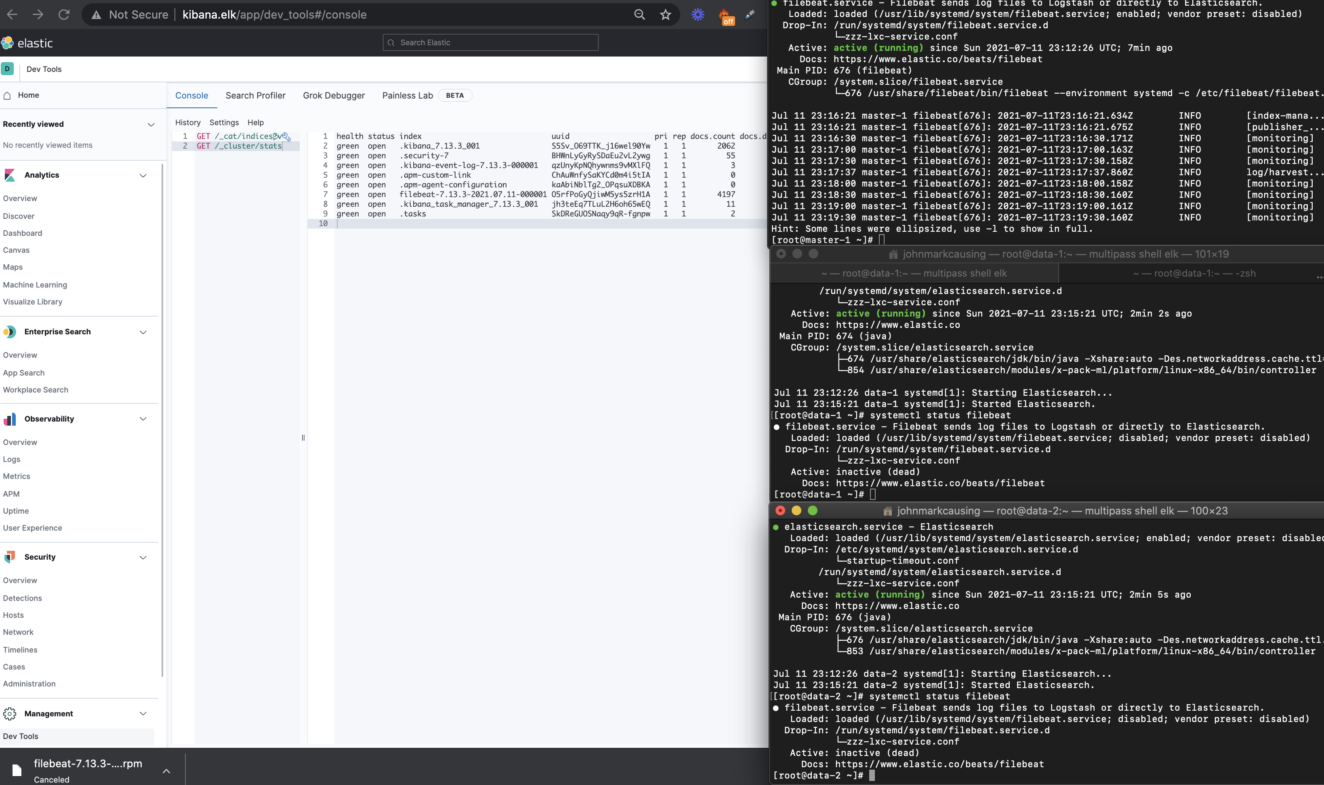In our previous tutorial, we have 3 LXC containers: master-1, data-1 and data-2. Login and ssh to each of those containers and install Filebeat then install it
curl -O https://artifacts.elastic.co/downloads/beats/filebeat/filebeat-7.13.3-x86_64.rpm
rpm --install filebeat-7.13.3-x86_64.rpm
systemctl enable filebeatEdit the yml file /etc/filebeat/filebeat.yml. These are the only lines I changed from the LXC master-1 (look under “setup.kibana” and “—- Outputs —-)
host: "10.73.174.25:8080"Under —- Outputs —-, just change the hostname, port, username and password
output.elasticsearch:
# Array of hosts to connect to.
hosts: ["10.73.174.25:9200"]
#api_key: "id:api_key"
username: "elastic"
password: "password88123818"Enable system mode from Filebeat
[root@master-1 ~]# filebeat modules enable system
Enabled systemPush the config for all the enabled modules. Make sure ES and Kibana are up and running. Otherwise, this will fail.
[root@master-1 ~]# filebeat setup
Overwriting ILM policy is disabled. Set `setup.ilm.overwrite: true` for enabling.
Index setup finished.
Loading dashboards (Kibana must be running and reachable)
Loaded dashboards
Setting up ML using setup --machine-learning is going to be removed in 8.0.0. Please use the ML app instead.
See more: https://www.elastic.co/guide/en/machine-learning/current/index.html
Loaded machine learning job configurations
Loaded Ingest pipelinesStart the Filebeat service
[root@master-1 ~]# systemctl start filebeat
[root@master-1 ~]# systemctl status filebeat
● filebeat.service - Filebeat sends log files to Logstash or directly to Elasticsearch.
Loaded: loaded (/usr/lib/systemd/system/filebeat.service; enabled; vendor preset: disabled)
Drop-In: /run/systemd/system/filebeat.service.d
└─zzz-lxc-service.conf
Active: active (running) since Sun 2021-07-11 08:43:00 UTC; 4s ago
Docs: https://www.elastic.co/beats/filebeatCheck if Filebeat indexes in ES. Check if it’s properly ingesting data
curl localhost:9200/_cat/indices?v -u elastic


The screenshot above shows it is there with 1083 documents/log events. So the steps above were for the ‘master-1’ node/container.
Do the same for the other containers ‘data-1’ and ‘data-2’